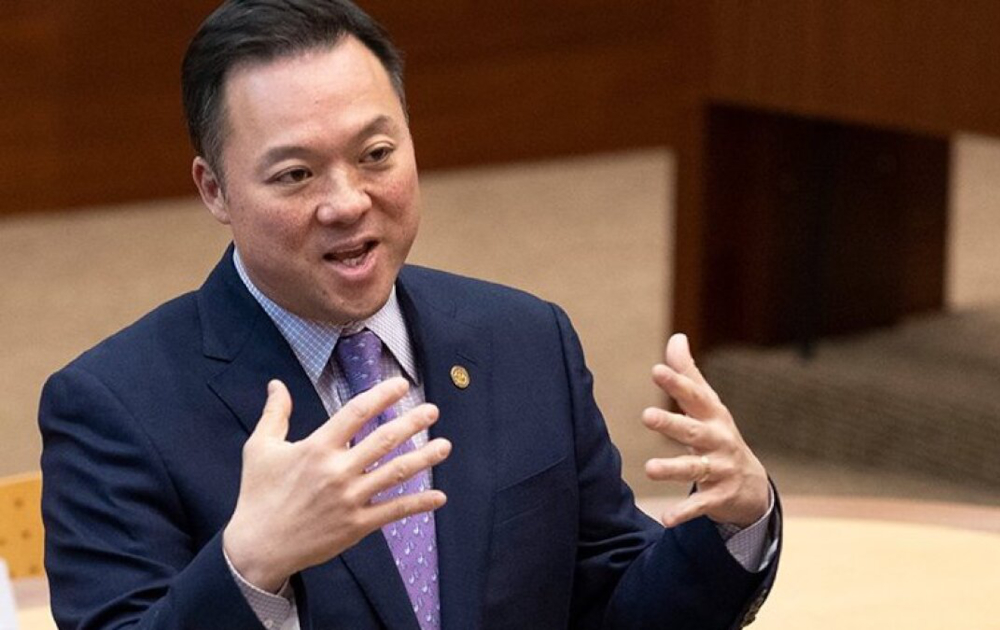Three wholesalers and four retailers in Connecticut have been hit with lawsuits for allegedly selling illegal delta-8 and delta-9 cannabis products.
While individual charges are entered for each defendant, the state’s Attorney General said the seven were unlawfully conventional marijuana products or THC-laced edibles.
Marijuana is legal in Connecticut for consumers over the age of 21, but may only be sold in the regulated market and must meet rigorous testing and packaging requirements.
According to the Office of the Attorney General and the Department of Consumer Protection, surprise inspections to vape shops, gas stations and convenience stores revealed the illegal products, including joints, marijuana buds, and edibles that mimic popular youth-oriented snack foods.
A ‘free-for-all’
“Cannabis is legal for adults in Connecticut, but it’s not a free-for-all — retailers must be licensed, and legal cannabis products must comply with strict safety standards,” Attorney General William Tong said in a statement. “These products are designed to deceive consumers into believing they are safe, tested, and regulated – that is false.”
Tong said the Connecticut Poison Control Center has gotten calls for 181 children under the age of six who ingested cannabis edibles since 2021, the majority of whom needed to be taken to a healthcare facility for treatment.
‘Unfair trade’
Tong charged the companies with violating the Connecticut Unfair Trade Practices Act, citing the following findings:
Greenleaf Farms, New London: The CBD retailer is alleged to have offered numerous illegal high-THC products for sale, including edibles designed to look like children’s cereal. Officials said the outlet also offered marijuana “blunts” in various THC concentrations. The products lacked required warning statements and labels, and do not appear to be produced by licensed facilities or tested under state law.
Smoker’s Corner, Norwich: The smoke shop, which has no license to sell cannabis products, is alleged to have been offering illegal edibles with over-the-limit levels of THC. The complaint further alleges that in one instance, an employee weighed, bagged and sold marijuana flowers from a Mason jar directly to a state investigator.
Anesthesia Convenience & Smoke, New Haven: A smoke shop that is also unlicensed to sell marijuana, Anesthesia is accused of offering thousands of high-THC products, many of which are more potent than products available in the regulated cannabis market. Products included edibles as well as marijuana flower, which also lacked required warnings and labels, and did not appear to be produced by licensed facilities or properly tested.
Planet Zaza, East Haven: Also unlicensed under marijuana laws, Planet Zaza was found to offer numerous over-the-limit high-THC cannabis edibles for sale. Investigators also discovered unauthorized labels, including fake prescription labels falsely indicating that the store is a licensed dispensary and that the illegal products were medical-use cannabis. The products did not appear to be produced in a licensed facility or properly tested.
Wholesalers targeted
Wholesalers targeted by the Attorney General drew similar charges. They are RZ Smoke, Suffield; Star Enterprise, New Britain; and Shark Wholesale, Bridgeport.
Each is accused by the Attorney General of supplying illicit cannabis products to Connecticut retailers in packaging that deceives consumers into reasonably believing they are purchasing cannabis products from the state’s legal, regulated market. All three are also accused of offering highly potent products far above allowable serving sizes and THC levels, and in packaging designed to mimic popular non-cannabis snacks.
Star’s products contained THC levels 35 times the permissible level, Shark’s products contained THC levels 15 times the limit, and RZ Smoke’s products contained THC levels 10 times the maximum allowed, according to the charges.
‘Untested, unsafe’
“Most of the products sold outside of our regulated market are untested and unsafe, especially if consumed by children,” said Department of Consumer Protection Commissioner Bryan T. Cafferelli. “Many of these products are packaged in a way that is misleading – signaling to consumers that the product inside is safe when it is not – and, most shamefully, are often sold to people who are underage and may not realize the effects of what they are consuming.”
Tong’s suits each seek court orders barring the companies from violating the state’s Unfair Trade Practices Act, civil penalties, disgorgement of money made from unlawful cannabis product sales and attorney fees. Violations of the trade act carry fines of up to $5,000 per violation.
Probes ongoing
The Attorney General now has ten pending enforcement actions, and has secured judgments against four additional Connecticut retailers totaling $40,000 for alleged violations of the Unfair Trade Practices Act over the sale of illegal delta-8 THC products. A portion of the payments will be suspended if the retailers comply with the terms of the judgment, including ceasing all sales of illegal cannabis, the Attorney General has said.
“We have multiple active investigations into additional retailers and wholesalers, and we will keep the heat on so long as these dangerous, illegal products are sold,” Tong said.
Earlier this month, Tong’s office issued a cease and desist letter to the organizers of HighBazaar, an unlicensed cannabis marketplace. An additional letter was sent to the Masonic Temple Day Spring Lodge in Hamden, which hosts the market.
With reporting from Law360

